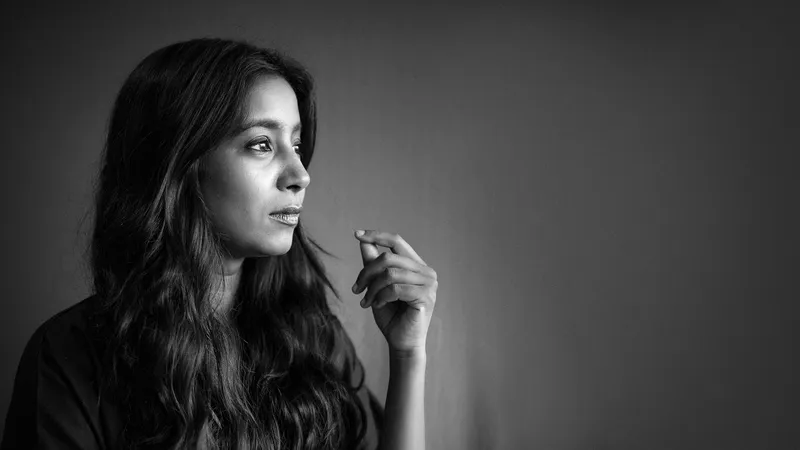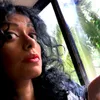It’s been a joyful ride so far, says singer Shilpa Rao as she blazes new trails in music
Singer Shilpa Rao, who rose to fame with 'Khuda Jaane' in 'Bachna Ae Haseeno', has come a long way. She tells HerStory about her initial years, the importance of collaborations, and her evolution as a musician.
The voice behind a number of Bollywood hits like Javeda Zindagi, Khuda Jaane, Manmarziyan, and Haan Tum Ho, singer Shilpa Rao is known for her soulful and emotional singing. Apart from her Bollywood hits, Shilpa recently collaborated with renowned sitar player Anoushka Shankar for a song Those Words.
Known for her stupendous mastery over Indian classical ragas, Shilpa has also made her mark with traditional ghazal and baithak gigs.
The musician strongly believes that Indian classical music is the base and an ever-evolving form of music, and there is always so much more to learn and explore.

Offering something new to her audience each time, Shilpa’s work as a playback singer is not limited to film soundtracks. She has collaborated with talented musicians from Karsh Kale and Agni to Noori and Anoushka Shankar. She also is the only Indian to have performed for Coke Studio Pakistan.
In a freewheeling conversation with HerStory, Shilpa Rao speaks about a host of things –how she’s keeping busy during the lockdown, the importance of collaborations, and her evolution as a musician.
HerStory: How are you spending your time during the lockdown? Do you think music will help people remain calm during social distancing?
Shilpa Rao: I am spending time with my family in Mumbai, trying to be more active on social media, doing live sessions with many publications and another artist, and also live singing for my fans. I believe music has the power to ease one’s mind and forget about everything for that moment. It's been a good time and much needed after the hectic schedule we usually have. I am also missing meeting my closest musicians, friends, the energy of live gigs, etc.
HS: Looking back at your 12-year journey in the music industry, how have you evolved as a singer?
SR: I had a great and magical time. If not for music, I’m not sure what I would be doing in life. I’m still learning with each passing day and every musician you meet drops a new seed of learning. So yes, it has been a joyful ride and I’m thankful to everyone who supported me along the way.
HS: Can you tell us a little about yourself, your early years, and initial influences in music?
SR: Music and I always had a very strong relationship. It grew deep in me and came naturally to me as a child as my father was a musician. While living in Jamshedpur, my father trained me and my brother while he did his riyaz. Later, I took lessons in ghazals and classical music from my guru Hariharanji.

HS: What kind of music were you drawn to in the beginning?
SR: I have grown up listening to ghazals and learning them. I was also trained in Hindustani classical music. And for the past two years, I have been very aggressively performing in different parts of India in the proper baithak style of the olden days where a ghazal performer would perform with just harmonium, table, and sarangi.
HS: Was it tough to get into Bollywood?
SR: There is always a struggle for every musician to start work in Bollywood. The trick is to keep your natural style of singing and your originality intact because that will get you your first song.
For sustaining in Bollywood or any form of music/art, you have to constantly keep learning. You have to evolve, you have to learn and better your art and skills, and your craftsmanship year after year.
HS: What do you think have been your biggest successes and challenges in the industry?
SR: Even if I had a bad day, I would still wake up in the morning, and get back to work with the same faith in my music. What stays with you are the people you have worked with and how much you learn from them not just as musicians, but also as artists.
HS: How do you define your kind of music?
SR: Pure.
HS: What are the songs that have defined you as a singer and are close to your heart?
SR: There is no one moment I can pick in these 12-13 years that has changed my life. No one project or song will change your life completely. All you can do is go to work with the same love, humility, and passion every single day, and learn from your environment and the people you work with - composers, lyricists, directors, producers, actors, the backing sound team -everyone.
HS: Tell us your experience with Coke Studio Pakistan. Do you think artistes thrive because of collaborations and more partnerships should be the norm?
SR: Collaborations are very close to my heart; I love to work on new music with different artistes, and that’s what I always have done apart from my work in films. It’s fun to work on the same song with another artiste; it’s like two hearts are better than one and there are two perspectives to the same song. I am very grateful to have received the opportunity to be part of Coke Studio Pakistan through a musician friend there.
HS: Do you think training in classical music makes one a versatile singer?
SR: Yes, absolutely. It is a must to experience the depth of music and it sets a solid base for any aspiring singer.
HR: Who are your favorite music directors/composers?
SR: I love every composer in today’s times as they urge us to try new things with every song, whether it is film or non-film work. I admire Sachet Parampara’s work; they have given some amazing compositions like Bekhayali, Pal Pal Dil Ke Paas.
HS: What kind of music do you like listening to personally?
SR: I personally prefer and love listening to classical music, ghazals, jazz, and world music.
(Edited by Teja Lele Desai)








